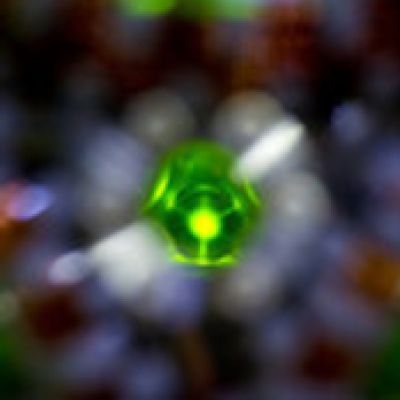Hear the latest news about everything from quantum computers to astrophysics, all straight from scientists at the University of Maryland.
https://hub.jqi.umd.edu/
Gesamtlänge aller Episoden: 15 hours 6 minutes
Physics at the edge of the world
Deep within the ice covering the South Pole, thousands of sensitive cameras strain their digital eyes in search of a faint blue glow—light that betrays the presence of high-energy neutrinos. For this episode, Chris sat down with UMD graduate student Liz Friedman and physics professor Kara Hoffman to learn more about IceCube, the massive underground neutrino observatory located in one of the most desolate spots on Earth...
Life at the edge of the world
What's it like living and working in Antarctica? Upon returning from a five-week trip to the Amundsen-Scott South Pole Station, UMD graduate student Liz Friedman sat down with Chris and Emily to chat about her experience. In this episode, Friedman shares some of her memories of station life and explains how plans at the pole don't always pan out. This episode of Relatively Certain was produced by Chris Cesare, Emily Edwards and Dina Genkina. It features music by Dave Depper...
Black holes: The ultimate cosmic whisks
Chaos. Time travel. Quantum entanglement. Each may play a role in figuring out whether black holes are the universe’s ultimate information scramblers. In this episode of Relatively Certain, Chris sits down with Brian Swingle, a QuICS Fellow and assistant professor of physics at UMD, to learn about some of the latest theoretical research on black holes—and how experiments to test some of these theories are getting tantalizingly close.
Labs IRL: A Craving for Code
Software just might be the unsung hero of physics labs. In this episode of Relatively Certain, Dina sits down with JQI postdoctoral researcher and programming aficionado Chris Billington to talk about his passion project—a piece of experimental control software that’s gaining popularity in labs here at the University of Maryland and around the world.
The Secrets Atoms Hold, Part 1: Search for Dark Matter
In this episode of Relatively Certain, Dina Genkina sits down with JQI Adjunct Fellow Marianna Safronova, a physics professor at the University of Delaware, and JQI Fellow Charles Clark, an adjunct professor of physics at UMD and a fellow of the National Institute of Standards and Technology, to talk about how precision measurements with atoms might shed some light on matter that’s otherwise dark.
Donuts, Donut Holes and Topological Superconductors
In this episode of Relatively Certain, Dina Genkina sits down with JQI Fellow Jay Sau, an associate professor of physics at UMD, and Johnpierre Paglione, a professor of physics at UMD and the director of the Quantum Materials Center.
Diamonds Are a Quantum Sensing Scientist’s Best Friend
We all know that diamonds can hold great sentimental (and monetary) value. As luck may have it, diamonds—particularly defective ones, with little errors in their crystal structure—also hold great scientific value. The defects have properties that can only be described by quantum mechanics, and researchers are working on harnessing these properties to pick up on tiny signals coming from individual biological cells.
The Secrets Atoms Hold, Part 2: Gravity
In this episode of Relatively Certain, JQI Adjunct Fellow Marianna Safronova and JQI Fellow Charles Clark return to discuss the limits of our understanding of gravity, and how new experiments with atom interferometers may be the key to not only a higher-precision understanding of gravity but also possible new physics.
Quantum-Safe Algorithms Face Off in NIST’s Cryptography Showdown
While browsing the web, you might not realize that the security of your online transactions is guaranteed by a hard-to-crack math problem called factoring. But this security could evaporate in an instant—if a big enough quantum computer is built. Computers that store information in quantum hardware—like individual ions, atoms or photons—would make quick work of the factoring problem and threaten the safety of current protocols...
Science in Quarantine: A Rush to Go Remote
In this episode, we look back at the early days of the COVID-19 pandemic, when impending lab closures were threatening scientific progress and graduate student careers. We sit down with Laird Egan, then a graduate student in physics at JQI, and hear about how he and his lab mates managed to turn their ion-based quantum computer into a remote-controlled experiment in a matter of weeks. We also learn how they used their newly remote lab to achieve a milestone in quantum computing.
